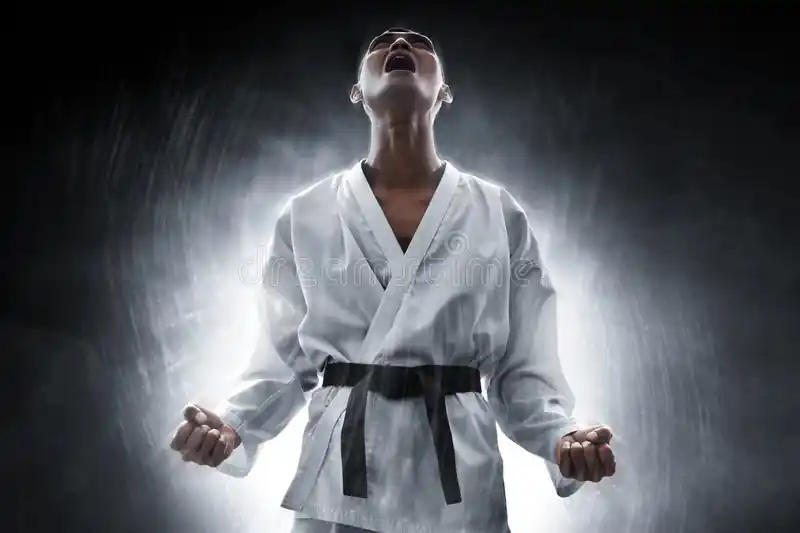Have you ever felt angry? Sometimes, it’s tough to control our emotions, especially when we get upset or frustrated. That’s where karate comes in! Did you know that martial arts therapy can help us manage our anger and emotions? In this article, we’ll dive into the science behind karate’s anger-defying power and how it can benefit our mental health.
Understanding Anger: The Psychology of Emotion Regulation
Anger is a normal and natural emotion. However, when we can’t control it, it can lead to problems like aggression and violence. Emotion regulation is the ability to manage our emotions and behaviors in a healthy way. Karate can help us with emotion regulation by teaching us skills like self-control, focus, and discipline.
From Mind to Body: Karate’s Impact on Brain Functioning
Karate training involves both physical and mental exercises. When we practice karate regularly, it can improve our brain functioning. Karate stimulates the prefrontal cortex, which is the area of our brain responsible for emotion regulation and decision-making. This can help us better control our emotions and make better choices in our daily lives.
Martial Arts and Mindfulness: The Connection Explained
Mindfulness is the practice of being present and aware of our thoughts, feelings, and surroundings. Karate can help us develop mindfulness by teaching us to focus on our breathing and body movements during training. This can help us stay present and focused in our daily lives, reducing stress and anxiety.
The Role of Karate in Trauma Therapy: A Scientific Perspective
Trauma is a difficult experience that can affect our mental and physical health. Karate can help trauma survivors by providing a safe and structured environment to process their emotions and develop coping skills. Studies have shown that karate can improve symptoms of PTSD and anxiety by reducing hyperarousal and increasing feelings of safety.
The Neurochemistry of Karate: How It Impacts Anger Management
Karate can also impact our brain chemistry. When we practice karate, our bodies release endorphins, which are natural chemicals that make us feel good. Endorphins can help reduce stress and improve our mood, making it easier to manage our anger and emotions.
Beyond Physical Fitness: The Emotional Benefits of Karate Practice
Karate isn’t just about physical fitness. It can also have emotional benefits, like improving our self-confidence, self-esteem, and self-awareness. Karate can also help us develop positive relationships with others by promoting teamwork and respect.
Karate for Kids: The Potential of Martial Arts in Child Therapy
Kids can benefit from martial arts therapy too! Karate can help kids develop self-discipline, focus, and social skills. It can also help kids with ADHD and other behavioral issues by providing a structured and supportive environment to learn and grow.
Mastering Anger: How Karate Can Help You Control Your Emotions
Karate can teach us valuable skills for managing our anger and emotions. By practicing karate, we can learn self-control, discipline, and focus, which can help us regulate our emotions in our daily lives. Karate can also provide a healthy outlet for our anger, reducing the risk of aggression and violence.
Karate is a powerful tool for managing our anger and emotions. Whether you’re a kid or an adult, karate can help you develop valuable skills for regulating your emotions and improving your mental health. Give it a try and see how it can benefit you! As the famous martial artist and actor Bruce Lee said, “Emotion can be the enemy, if you give into your emotion, you lose yourself. You must be at one with your emotions, because the body always follows the mind.”
FAQs:
Q: Is karate the only type of martial arts therapy?
A: No, there are many types of martial arts therapy, like Taekwondo, Kung Fu, and Judo.
Q: Can martial arts therapy be used to treat other mental health conditions?
A: Yes, studies have shown that martial arts therapy can benefit conditions like anxiety, depression, and PTSD.
Q: Do I need to have experience with martial arts to try martial arts therapy?
A: No, martial arts therapy is designed for people of all skill levels and backgrounds.
Q: Is martial arts therapy safe?
A: Yes, martial arts therapy is safe when practiced in a structured and supervised environment.
Q: How often should I practice martial arts therapy?
A: It’s recommended to practice martial arts therapy at least once a week, but the frequency can vary based on individual needs.
Q: Can kids practice martial arts therapy?
A: Yes, martial arts therapy can be beneficial for kids as well as adults.
Q: Do I need any special equipment to practice martial arts therapy?
A: Some martial arts therapy programs may require specific equipment, like a uniform or protective gear, but many do not.

